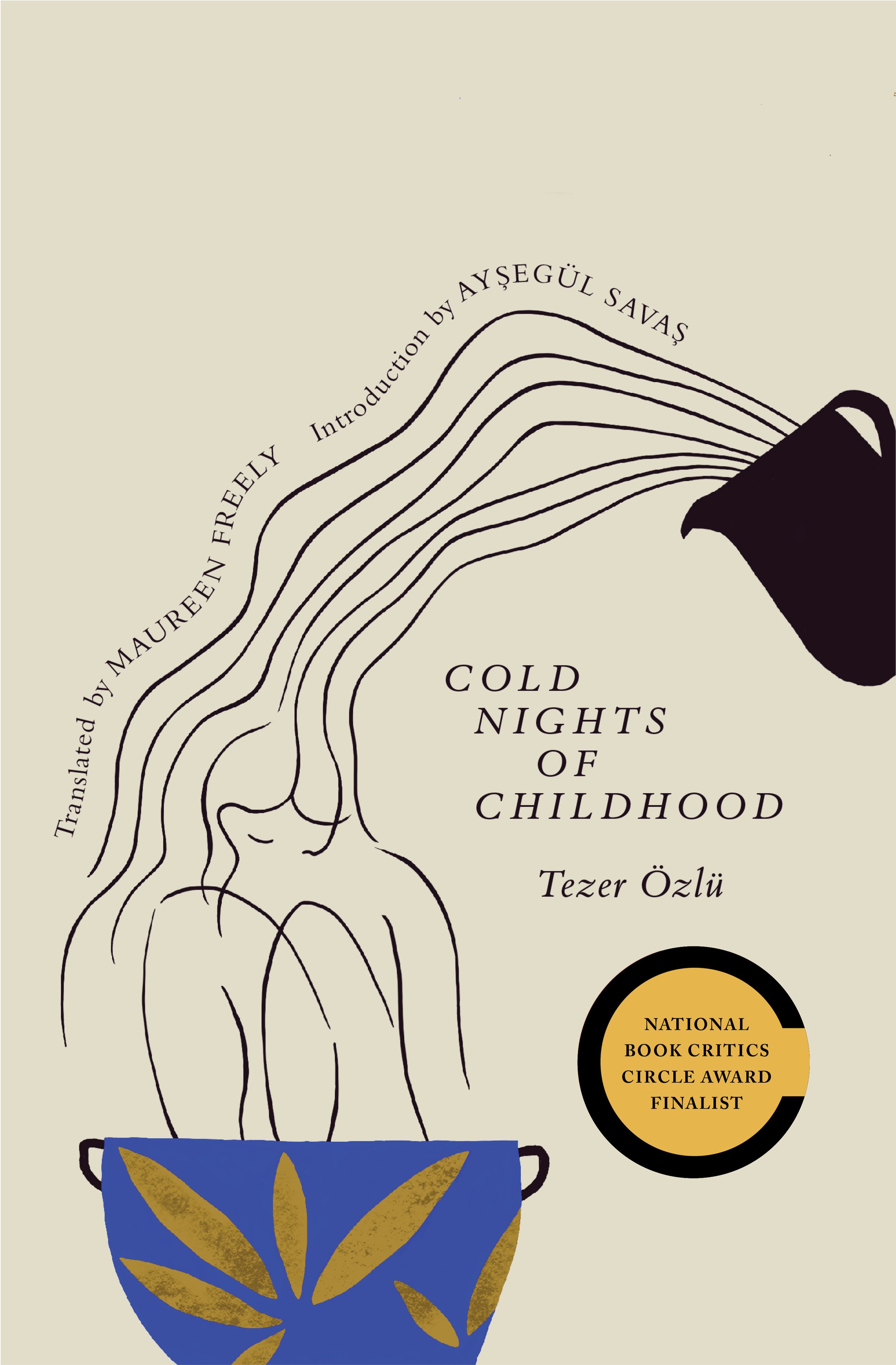Women in Translation Month: A Reading List
This Women in Translation Month, we're highlighting translated titles by women authors from our catalog to add to your shelves and reading lists this summer. To celebrate, we're offering 30% off all titles by women in translation through the end of August with the discount code WITMONTH.
Imminence by Mariana Dimópulos (tr. Alice Whitmore)
A new mother holds her month-old son for the first time, but her body betrays her with an absence of feeling. Disoriented, she wanders with her partner around their plant-filled Buenos Aires apartment. In a dreamlike space composed of overlapping vignettes, Irina retraces the mirrored paths of a life filled with images that swell and recede. Set over the course of an evening, and a lifetime, Imminence shifts seamlessly between the present and the past.
Blue Self Portrait by Noémi Lefebvre (tr. Sophie Lewis)
On a flight from Berlin to Paris, a woman haunted by German composer Arnold Schoenberg’s self-portrait reflects on her romantic encounter with a German-American pianist-composer. Obsessive, darkly comic, and full of angst, Blue Self-Portrait unfolds among Berlin’s cultural institutions, but is located in the mid-air flux between contrary impulses, with repetitions and variations that explore the possibilities and limitations of art, history, and connection.
The Tree and the Vine by Dola de Jong (tr. Kristin Gehrman)
Elena Ferrante meets Patricia Highsmith’s The Price of Salt in this 1950s classic of repressed queer desire, set against the rising threat of WWII. A groundbreaking work in its time for its frank and sensitive depiction of the love between two women torn between desire and taboo in the years leading up to the Nazi occupation of Amsterdam.
“De Jong depicts the darker, dangerous side of the world of same-sex desire, and the way it’s a source of torment—physical and psychological—for those who exist within it.”—The Paris Review
Siblings by Brigitte Reimann (tr. Lucy Jones)
1960. The border between East and West Germany has closed. For Elisabeth, a young painter, the GDR is her generation’s chance to build a glorious, egalitarian socialist future. For her brother Uli, it is a place of stricture and oppression. Separating them is the ever-wider chasm of the Party line; over them loom the twin specters of opportunity and fear, and the shadow of their defector brother Konrad, prompting a clash between idealism and suppression, familial loyalty, and desire.
Cold Nights of Childhood by Tezer Özlü (tr. Maureen Freely)
Set across the rambling orchards of a childhood in the Turkish provinces and the smoke-filled cafes of European capitals, Cold Nights of Childhood offers a sensual, unflinching portrayal of a woman’s sexual encounters and psychological struggle, staging a clash between unbridled feminine desire and repressive, patriarchal society.
We All Loved Cowboys by Carol Bensimon (tr. Beth Fowler)
Two women reunite after a falling out to embark on a long road trip through Brazil. Bensimon offers an intimate exploration of desire, identity, and the limitations and possibilities of female sexuality in this queer, Sad Girl coming-of-age road novel.
"This short but profoundly moving novel by the young Brazilian writer is one of the finest explorations of love you will find anywhere this year."—The Boston Globe
At Night He Lifts Weights by Kang Young-sook (tr. Janet Hong) (forthcoming)
An artist is plagued by desire for her mysterious double as disease spreads through an uncanny suburban landscape. An elderly woman suspects the old man who lifts weights in her neighborhood playground of being responsible for a spate of murders. While elsewhere, a woman who believes she’s been exposed to radioactive radiation inherits a warehouse where those fleeing the city can store their possessions. Beneath the calm surface of the stories collected here, Kang Young-sook offers a disquieting vision of a society grappling with ecological catastrophe and unplaceable forms of loss.
Poetics of Work by Noémi Lefebvre (tr. Sophie Lewis)
A state of emergency has been declared in France. In Lyon, protesters and police clash in the streets. At the unemployment office, there are few job opportunities for poets going around. So the poet reads accounts of life under the Third Reich and in Nazi language, smokes cannabis, walks through the streets, and eats bananas, drawn by an overbearing father into a hilarious and often cynical exploration of the push to be employed and the pull to write.
Migratory Birds by Mariana Oliver (tr. Julia Sanches)
Moving through geographic and intellectual spaces with an abiding curiosity and poetic ease, Oliver presents a brilliant collection of essays that asks us what it means to leave the familiar behind and make the unfamiliar our own.
“Oliver debuts with a thoughtful, roving meditation on migration, language, and home. In intimate pieces studded with references to history and literature, Oliver ponders such topics as the tug of home and the consequences of dislocation... Fans of lyrical essays will enjoy this literary global odyssey.”—Publishers Weekly
I Who Have Never Known Men by Jacqueline Harpman (tr. Ros Schwartz)
Deep underground, thirty-nine women live imprisoned in a cage. Watched over by guards, the women have no memory of how they got there, no notion of time, and only a vague recollection of their lives before. As the burn of electric light merges day into night and numberless years pass, a young girl—the fortieth prisoner—sits alone and outcast in the corner. Soon she will show herself to be the key to the others’ escape and survival in the strange world that awaits them above ground.
The Touch System by Alejandra Costamagna (tr. Lisa Dillman)
An ambitious portrait of alienation and belonging, and of two families and countries separated by a range of mountains. Threaded together with encyclopedia entries, pages from an old immigrant manual, typing class exercises, half-faded photos, and letters mailed between continents, The Touch System introduces Alejandra Costamagna as one of the most powerful and subtle writers in contemporary Latin American literature.
Grove by Esther Kinsky (tr. Caroline Schmidt)
An unnamed narrator, recently bereaved, travels to Olevano, a small village southeast of Rome. It is winter, and from her temporary residence on a hill between village and cemetery, she embarks on walks and outings, exploring the banal and the sublime with equal dedication and intensity. Then the narrator visits Northern Italy, between Ferrara and the Po estuary, some years after the bereavement. Seeing, describing, naming the world around her is her way of redefining her place within it. Written in a rich and poetic style, Grove is an exquisite novel of grief, love, and landscapes.
Accommodations by Wioletta Greg (tr. Jennifer Croft)
Accommodations follows Wiola after she leaves her childhood village, a close-knit agricultural community in Poland where the Catholic calendar and local gossip punctuate daily life. Her new independence in the nearby city of Czestochowa is far from a fresh start, as she moves between a hostel and a convent brimming with secrets, taking in the stories of those around her. In the same striking prose that drew readers to her critically acclaimed debut, Accommodations navigates Wiola’s winding path to self-discovery.
Include Me Out by María Sonia Cristoff (tr. Katherine Silver)
Mara is a simultaneous interpreter who moves to a provincial town in Argentina in order to speak as little as possible for a year. Steeled with the ten rules of silence set out in her manual of rhetoric, she takes a job as a guard in the local museum. Bold, subversive, and threaded through with acerbic wit, Include Me Out is an exploration of the range and expression of female silence.
The Dinner Guest by Gabriela Ybarra (tr. Natasha Wimmer)
The Dinner Guest is a novel with the feel of documentary nonfiction. It connects two life-changing events—the very public death of Ybarra’s grandfather, and the more private pain as her mother dies from cancer and Gabriela cares for her. Devastating and luminous, the book is an investigation, marking the arrival of a talented new voice in international fiction.
















